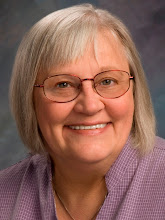One of the most frequent comments I hear when I'm out talking independent politics goes something like this: "Okay, so I know I'm not a Republican anymore, but I'm not happy with the Democrats either. Where can I go?" If the political seeker rejects my incredibly persuasive argument to just be independent, the conversation turns to third parties --- and these days, that often means the Green Party, which just wrapped up its 2008 presidential nominating convention.
So what about the Greens? For progressives, are they a viable alternative to the major parties? There's certainly a lot to be said in their favor; for one, they don't accept corporate donations, and that alone is enough to make me swoon. And their four abiding principles are grassroots democracy, social justice, ecology, and nonviolence. Not a lot to argue with there.
On social issues, Greens favor abortion rights, same-sex marriage rights, amnesty for illegal immigrants, universal healthcare, reduction in deficit spending, gun control, legalization of drugs and fair trade. They oppose the war in Iraq, capital punishment and school prayer. They are strong advocates of political and electoral reform --- not surprising, since their candidates are frequent victims of policies, rules and regulations devised by the two major parties that are designed to exclude them from the political process entirely. Their 2008 platform, which you can find at
www.wp.org, also addresses numerous human rights issues.
If that platform resonates with you, then maybe Green is the way to go. But you can't join a party like the Greens and expect to make changes from within on issues you disagree with. They're not likely to change their strong stance on reproductive rights, for example. Ironically, you won't find as much diversity of opinion in third parties as you find in major parties; their positions on issues are often tightly worded, carefully crafted, well-honed statements that represent hills to die on. That's not a bad thing --- the major parties should be so clear on their positions! --- but it's something you should be aware of.
And before you make the leap from a major party to any third party, it helps to understand some fundamentals about minor-party politics. You need to be prepared to face defeat and disappointment with optimism, because you won't survive otherwise. Greens are in this for the long haul; they're concerned less about election losses, especially on the national level, and more about building a party and a movement so that one day those national victories will come more easily. You can expect to be asked to get involved, because Greens, like any other third party, cannot make it without the assistance of an army of volunteers. Finally, it helps to be ready to handle the attacks that are sure to come your way from people who call you a spoiler, question your sanity and berate you for supporting
Cynthia McKinney for president, even if you don't.
McKinney, a former member of Congress from Georgia, is the Green Party presidential nominee this year. You may remember her as the representative who
thwacked a U.S, Capitol Police officer with her cell phone after she was stopped at a security checkpoint in 2006. Not every Green is thrilled with her nomination --- this is a political party, after all, with plenty of infighting and dissension and charges of backroom deals --- but since she has no chance of winning, they're generally glad to have a nominee with name recognition and a congressional track record who might garner some media attention and thus help other Green candidates running for state offices.
Carl Romanelli, one of my favorite political candidates in the entire U.S. of A., ran for U.S. Senate on the Green Party ticket in Pennsylvania in 2006, or at least tried to until the Democrats derailed his campaign and sued him for what at last count was $100,000-plus. His campaign attracted so much attention that it resulted in a documentary titled
"It Ain't Easy Being Green." Be forewarned: Lots of Greens agree with that title, but they knew it would be hard. Minor-party politics always are.


















